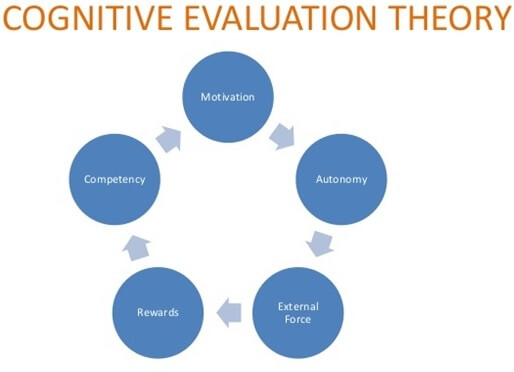Cognitive Evaluation Theory
It is a theory which explains the relationship between the extrinsic and intrinsic motivation. In other words, it is a theory which explains how the external consequences affect the internal motivation. It can also be known as sub theory of Self Determination.
Individuals who are self motivated performs the task for their own satisfaction. And when they are bound by the time limit, working condition or pay (extrinsic motivation), they begin to lose motivation.

Implications of cognitive evaluation theory
Reward is perceived to be negatively impact the autonomy and competence of an individual, which will result in to a decreased level of intrinsic motivation in an employee. But the rewards which are unexpected and are not dependent on the task, does not decrease the level of motivation. Positive feedback should be such that it does not control the event of the individual. So even a positive feedback, presented in a controlling manner, can decrease the level of motivation. When the task is of less interest for the individual, even the reward then cannot decrease the level of motivation. So it indicates that at the time of boring task, rewards can be used.
If both the things are taken together, positive feedback at the time of interesting task is generally a positive force on individual and tangible and expected rewards are negative force. This shows that whenever tangible reward is to be used, it should not be known to the employee before and positive feedback should be such that it doesn’t hard the autonomy of the individual.
Few important topics related Employee motivation
- Motivation Theories
- Methods of motivating employees
- The Needs Theory
- ERG Theory of Motivation
- Acquired Needs Theory
- The Equity theory of Motivation
- Vroom’s Expectancy Theory
- Thorndike's Reinforcement Theory
- Locke’s Goal Setting Theory
- Self Determination
- Cognitive Evaluation Theory
- Reward Systems & Employee Behavior


